The following is from the Summer 2021 issue of Vision.
by Mary Mc Cormick, SC
New York Sisters of Charity have always cherished Elizabeth Seton’s understanding of her desire to be known as a “citizen of the world.”
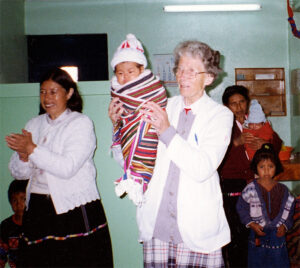
In 1856 and then in 1889 the community missioned sisters beyond the U.S. borders, to Halifax, Nova Scotia, and to Nassau, The Bahamas.
But it was Vatican Council II that opened U.S. religious communities to new possibilities of collaboration with and connection to the experiences of the Church in Latin America.
The Mission Commission established by the SC General Assembly in 1969 explored possibilities for service in various countries south of the U.S. border.
Guatemala was chosen as a place where the needs were great and Church authorities were willing to receive Sisters of Charity as missionaries in the state of Sololá in the northwest of the country. From 1971 to the present, our sisters have served in the fields of health, catechetics, social work and formation. Nurse midwives delivered babies and catechists trained local church leaders to preach and teach. Mayan people were accompanied back from long exile in Mexico. The widows of Sololá were given the opportunity to sell their weavings in markets which provided a just recompense. Potable water projects brought clean water to villages where people lacked drinkable water and proper waste disposal.
A House of Formation for women discerning a call to religious life as Sisters of Charity was opened. There is an active Associate Program with members in Sololá and Quiché. And the Barbara Ford Peacebuilding Center, opened in 2009 in Chajbal, outside of Santa Cruz, is a multiservice initiative which provides integrated human and spiritual development, especially to rural poor women and girls traumatized by physical, psychological and emotional abuse.
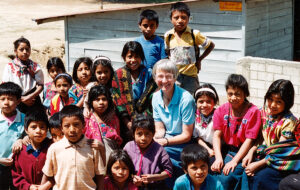
The first three Sisters, Immaculata Burke, Marie Tolle, and Doris Pagano, arrived in Novillero, Sololá, in April 1971. A convent formerly occupied by the Congregation of Daughters of Mary, Health of the Sick became their home and continues to be a residence for the community to this day.
Three clinics had been started by the Daughters of Mary: in Novillero, behind the convent, in Nahualá, and in Santa Catarina Ixtuhacan. Sr. Immaculata continued providing services in these clinics and was later joined by Sisters Sheila Brosnan and Barbara Ford. Dr. José Miguel Vasquez has been medical director for the four clinics and is an associate of the Sisters of Charity. Sr. Eileen Judge arrived in Guatemala in 1998 and served as a nurse practitioner in a home for the elderly in Lemoa, Quiché. Currently, Sr. Rosenda Castañeda operates a small clinic in the cathedral parish of Santa Cruz.
Pastoral work was the special ministry of Sisters Marie Tolle, Doris Pagano, Constance Kelly, Katherine Byrnes and Elizabeth Judge. Over the years they did outreach in Novillero, Quiché and San Marcos.
After an absence of several years, Sr. Barbara Ford returned to Guatemala in 1989 and moved to Quiché. She was joined by Sr. Virginia Searing in 1995. Both worked at Caritas, a health agency in Santa Cruz. Sr. Mary Meyler joined them in 1996 and became the founder and director of an alcohol prevention and rehabilitation center in Santa Cruz. Women fearful of admitting to the disease were touched by Sr. Mary’s gentle acceptance and genuine love for them and sought from her the help they needed.
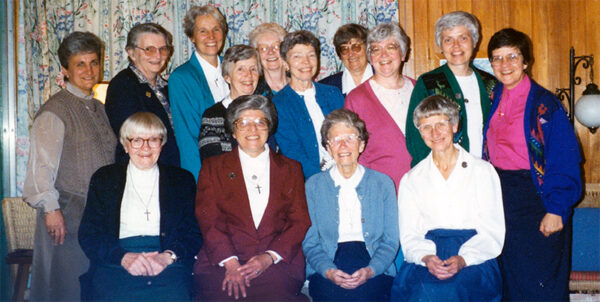
In 2005, the SC Council opened a House of Formation in Quiché. Sisters Mary Meyler and Virginia Searing accompanied the first six inquirers until Sr. Gloria De Arteaga became Aspirant Director in August 2006.
Sr. Eileen Judge, in Guatemala since 1998, moved to the newly opened formation house to start an Associate Program. In 2007 the program began when Laura Morales Chic, a long-time coworker with Sisters Barbara Ford and Virginia Searing, became the first associate. She and Sr. Eileen attended the Federation Associate Weekend Charism retreat in Emmitsburg and were enthusiastic about bringing the program to Guatemala. Laura made her commitment in 2010 and partnered with Sr. Eileen in recruiting and orienting others.
Sr. Anne Denise Brennan served as Associate Director from 2012 to 2014. Under her direction, the program grew in both Sololá and Quiché. Currently there are 35 associates in both states.
As a result of a request made by the Guatemalan associates at Assembly 2019, a new committee was formed consisting of both U.S. and Guatemalan associates and sisters. The group named themselves “One Community” and have been meeting regularly, via video conference with simultaneous translation. Their goal is to get to know one another’s cultures, dreams, and sense of the SC mission.
Sr. Cecilia Harriendorf, who had been Campus Minister at the College of Mount Saint Vincent, brought nursing students and alums to Guatemala to experience health measures outside the United States. Sr. Ceil moved to Guatemala, dividing her time from 2013 to 2016 between Novillero and Quiché. She continued to provide mission experiences of short duration for nursing students and alums, as well as several groups of sisters and SC associates.
Part Two
Guatemala’s history in the 50 years of Sisters of Charity presence has been dominated by the twin catastrophes of climate change and the violence brought on by the 36-year-old war that ended only in 1996.
Serious adverse climatic conditions, largely man-made, have resulted in the destruction of forests, pollution of rivers, aftereffects of strip mining, and the unregulated emission of carbon dioxide by trucks, cars and buses, among other causes. In addition, an earthquake in 1979 and devastating hurricanes in 1998 and 2019 caused the deaths of many, destroyed whole villages, and left survivors with few resources to rebuild.
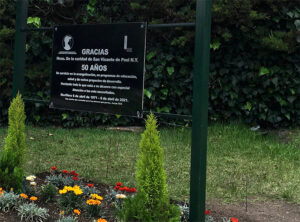
Years of violence beginning in the 1960s resulted in what has been rightly called genocide: the deaths of 200,000 Mayan men, women, and children by state-sponsored forces. The Peace Accords ended the war, but post-conflict trauma remains the stuff of nightmares for countless survivors.
Both catastrophes have had an impact on the way the Sisters of Charity have responded to the enormous demands made on them.
In addition to the work being done in the clinics and the spiritual aid provided by Sisters in the parishes in Sololá and San Marcos, other initiatives came into fruition in the state of Quiché.
In 1996 Sisters Barbara Ford and Virginia Searing, working with Caritas, joined the recently added mental health team of the integrated health program. They developed programs using Mayan healing practices and western psychology to allow survivors of the violence to begin the healing process. They began to visit places where the atrocities occurred and ministered to the people left behind. They accompanied the families of those buried in mass graves and exhumed the remains, which were then given a dignified Mayan burial.
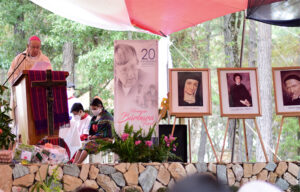
Sisters Barbara and Virginia continued the work of reclamation into the new century. On May 5, 2001, in Guatemala City, Sr. Barbara was killed in a carjacking that had turned deadly. Although there was much speculation about the motive for the murder, intensive investigation ruled out a political one. As the 20th anniversary of her death was celebrated in May, Sr. Barbara continues to be revered by many for the work she did for over 20 years with the poorest of the Mayan community.
The Barbara Ford Peacebuilding Center, opened in 2009 in Quiché by the Sisters of Charity, continues to focus on integrated mental and spiritual health. Its well-prepared and enthusiastic teams offer opportunities for youth training and employment, understanding of human rights, including the rights of children, and agricultural projects, including a model farm. The Center partners with other organizations to bring the best of what is available to the rural poor, especially to women and girls who suffer from the effects of physical, mental and sexual abuse. (See Vision, Summer 2018, pages 8-9 and 12 to read about the about programs offered at the Barbara Ford Peacebuilding Center.)
Guatemala, land of eternal spring, continues to be a place of special bonding between the Sisters of Charity and its people. May we long continue our relationship of love and service with each other.
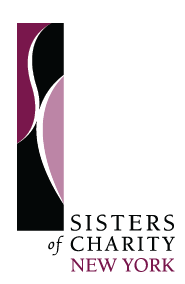
Hello. All of these Sisters were wonderful servants of God. Hey gave their lives to help the poor. What happened to Sister Marie Immaculata Burke. She truly was a wonderful person. I met her several times. Thank you.